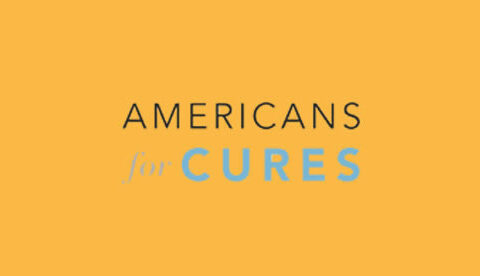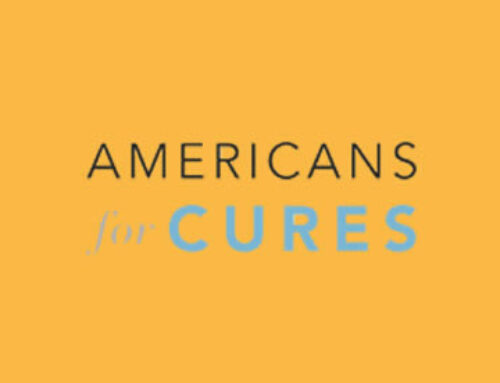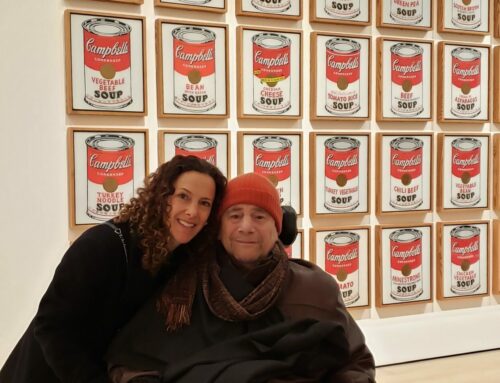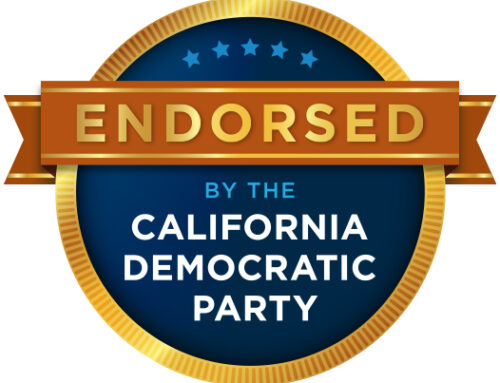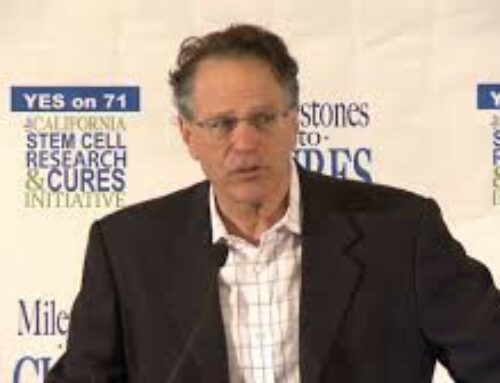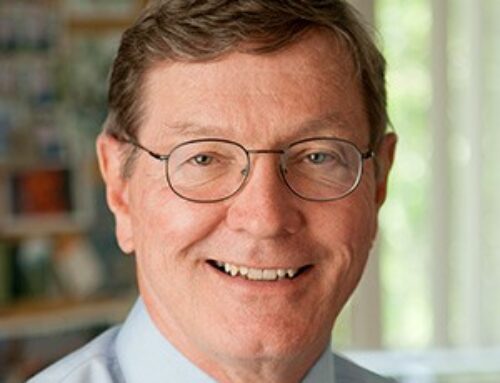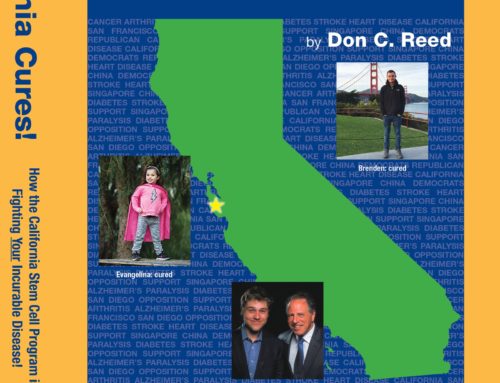At the very heart of our Biblical tradition is this commandment from the Book of Leviticus: “You shall not stand idly by the blood of your fellow.” (Leviticus 19:16)
If we see our sisters or brothers in danger, our job is simple: provide that help, come to their aid, do what is in our power to protect them and save them.
In the midst of a global pandemic, we feel the call to protect and promote the health and well-being of others even more urgently. Right now, we hear the call to uphold the ultimate Jewish value of pikuach nefesh (saving a life).
Sometimes, we live out that value in an immediate way. We donate blood today, which can save lives in real time. We provide support for basic needs to ensure that people in our community have enough to eat right now. But if we truly wish to move the needle in the work of pikuach nefesh, we must also provide resources to fund research over many years, even decades, that will, ultimately, yield dramatic results.
To truly make a difference, to be God’s partners in bringing healing to the world, we must “not stand idly by” in both immediate and long-term ways.
California voters have an opportunity to do just this by voting Yes on Proposition 14, which will advance the California Institute of Regenerative Medicine’s stem cell research to help those who are affected by ailments including heart disease, diabetes, Alzheimer’s, Parkinson’s Disease, sickle cell disease, spinal cord injuries, COVID-19, and so many other chronic illnesses and injuries.
Funding for this important and vital medical research help save lives, and it will provide immediate economic stimulus as well. Even as it funds long-term strategies to alleviate human suffering, Proposition 14 will create jobs during this challenging time. Recent studies suggest that Proposition 14 would generate approximately $20 billion in increased economic activity in California, yielding more than 100,000 new jobs at every level. This far surpasses Proposition 14’s estimated cost of $5.5 billion in bonds.
Critics of the proposition question the need for such funding on a state level today. They argue that Proposition 71, the initiative that originally created the California Institute of Regenerative Medicine, was passed in 2004 only because President George W. Bush had banned federal funding for stem cell research. Now that federal funding for stem cell research is allowed, the critic charge, it’s no longer California’s responsibility to fund such research; private and federal funding be used to continue this important work.
However, relying on federal and private funds is too risky. Many in our country wish to stifle and limit stem cell research on religious grounds. Far more importantly, Jewish law on this matter is unequivocal: stem cell research is not just permitted, but, arguably, required as a matter of pikuach nefesh. Numerous halakhic authorities have made this clear. It should, therefore, come as no surprise that some of the most exciting work in stem cell research is currently being done in Israel.
Medical experts agree that stem cell research and therapies will save lives and alleviate human suffering. In fact, it already has. One example is the stem cell Dr. Donald Kohn at UCLA conducted to cure ADA-SCID — “bubble baby disease.”
This work is too important for us to leave it to chance or to allow it to be cut-off or limited. We see Proposition 14’s opportunity to provide such resources for life-saving research as a blessing, the fulfillment of core Jewish values. Just one chapter before the commandment to “not stand idly by,” our Torah reminds us that the purpose of mitzvot, the very goal of Judaism, is to enhance life. We are commanded: “in the pursuit of My laws and statutes you shall live (וָחַי בָּהֶם).” (Leviticus 18:5) The Rabbis of the Talmud interpret this verse to mean that the ultimate value, above all else, is life itself.
To be sure, it will take many years to realize the promise of current research. But like the well-known story of Honi, who came upon an old man planting a tree that would not bear fruit for another seventy years, we recognize that our efforts are not for ourselves alone. Just as our ancestors sacrificed so that our lives would be better, we commit ourselves to doing the same for our descendants.
The voices of our sisters and brothers cry out to us: friends and family members with diabetes; co-workers fighting against cancer; loved ones slipping away due to the cruel ravages of Alzheimer’s. They call out to us in their pain. They are searching for hope. We cannot stand idly by. We must generously sacrifice so that they and subsequent generations might חַי בָּהֶם, live and be well.
There are quite literally lives to be saved. Join us by voting Yes on Proposition 14 on November 3rd.
To learn more, visit www.YesOn14.com
Rabbi Sydney Mintz is the Senior Associate Rabbi of Congregation EmanuEl in San Francisco.
Rabbi Yoshi Zweiback is the Senior Rabbi of Stephen Wise Temple in Los Angeles. (Rabbi Zweiback’s spouse, Jacqueline Hantgan, is a staff member for Prop 14.)



